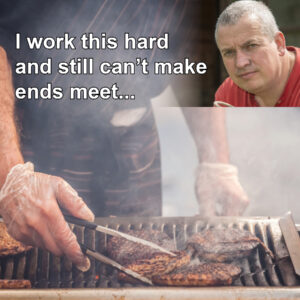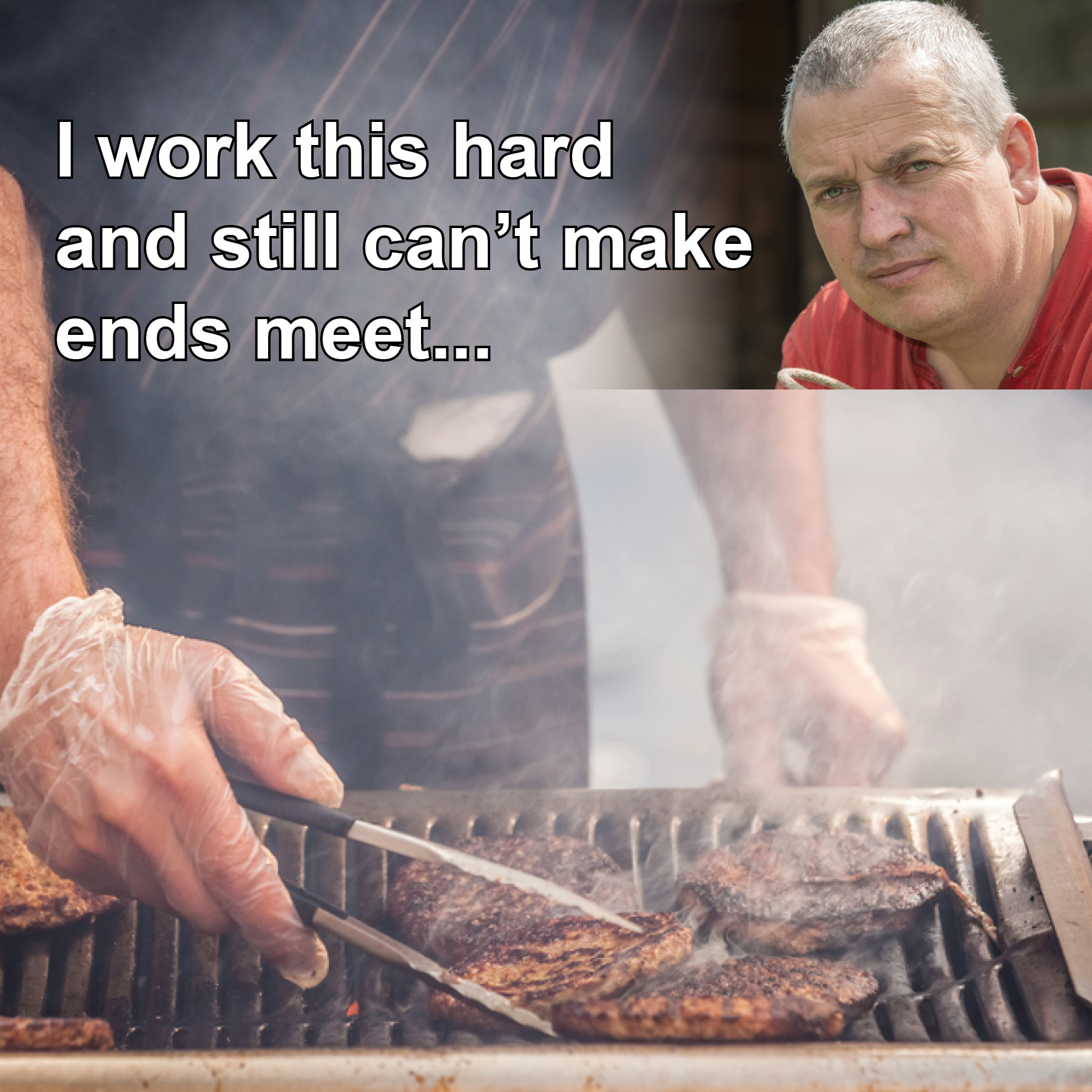By Jeremy Reynalds, Ph.D.
Founder and CEO
Joy Junction Inc.
 There’s a belief among some that people who work full time don’t usually live in poverty.
There’s a belief among some that people who work full time don’t usually live in poverty.
But is it true?
We asked some of our Joy Junction guests, and also posed the question on our Facebook page. It drew expected, but also some surprising and heated answers.
So what is poverty? One definition is “the state of being extremely poor.”
How does the government define poverty? According to the 2015 federal poverty guidelines, if you’re living by yourself you’re in poverty if you earn $11,770 per year or below. If there are two people in your household, your poverty level caps off at $15,930 per year, and for a family of three the magic number is $20,090 per year while for a family of four it’s $24,250 per year.
Some of our Joy Junction guests gave answers I’d been expecting. One woman said with the high cost of living it’s especially hard to get by when you have a family to take care of. Her answer was mirrored in a number of other responses.
One woman wrote that with a family of eight (six kids), and she and her husband working full time, they still weren’t making ends meet. Rent, utilities, food and other necessities usually meant there was more month than money.
One woman mentioned single parents who work full time and barely scrape by. She also mentioned some two income households that when combined still fall below the poverty level, and as a result they only get by with food stamps or Medicaid.
Another woman brought up something perhaps not considered by a lot of people. A bad rental history can result in your being homeless, with or without a job. Landlords will often check a prospective tenant’s rental history.
Failure to achieve the desired results can, quite literally, keep you out in the cold or result in you being forced to live in a less than desirable area of town.
One woman said she recalled living in government housing, working full time and still being on food stamps.
She added, “If I did not receive help I wouldn’t have had a place to live. I also would not have been able to feed my son or myself.”
Another woman remembered working full time when she was 20 and pregnant. However, she still needed food stamps and Medicaid.
“Without the help, I would not have been able to eat or pay for any of my medical expenses.”
One guest said there were times when her family went without a meal in order to pay a bill. She added, “We made too much to get food stamps.”
One male guest who said he has “worked my butt off,” said he is still struggling with finances and expenses, while someone else said life is an ongoing struggle to make ends meet.
Perhaps one of the most poignant responses was from a woman who said, “Yes, I have worked full time and live in poverty and homelessness. I know because I have been through it every day of my life.”
However, a few of the responses from our Joy Junction residents which while technically true, were quite surprising.
One man commented, “Sometimes their life style takes away from good things they need to live a decent life. They care more about their addictions, and all their money goes to that.”
Another woman said it’s all in how you choose to manage your finances.
However, the woman whose response surprised me most about people who work full time not usually living in poverty, (and who didn’t take addictions or mental health challenges into account) said, “People who work hard, are ambitious and driven, have goals and are with money, are wise and have knowledge, go far and prosper.’
Those who responded to this question on Facebook were unequivocal that you can work full time and most definitely be in poverty.
Christina said despite working three jobs she was still at poverty levels, and had to get food stamps and cash assistance to make ends meet.
Charlene said she also worked three part time jobs, but was denied food stamps and other assistance. She added, “Thank God, a private charity brought me some food.’
Sandy said when you have children, saving money is almost an impossibility.
She said, “Every payday I transfer a little into my savings, but it never fails. (I) end up having to use it. Been trying to save some for Christmas all year. As of today, I’ve got $45 in savings for that.”
Natasha said while she has a “great job,” and makes more than $15.00 an hour, student loans and a divorce have plunged her into “horrible debt.”
“I barely make ends meet, and have been evicted before. The struggle is definitely real. I don’t qualify for CYFD childcare assistance either. I have a good job but am broke, which is why I give as much as I can to the homeless. It’s not much but I try.”
It’s people like Natasha who give me hope for the future. She and others like her are the reason why we will make it as a city, state and community, whoever is in political office. While our country’s social and economic future looks terrifying to some and rosy to others, when we each do what we can, we will end hopelessness, hunger and homelessness, one meal and one life at a time.
For more information on helping the homeless and hungry through Joy Junction, click here


